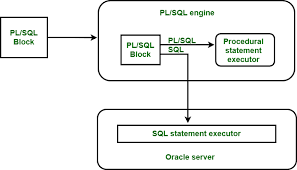PL/SQL Variables Naming Convention - Shikshaglobe

PL/SQL Variables Naming Convention
When creating variables in PL/SQL, it is important to follow a naming convention in order to make your code more readable and easier to maintain. A good naming convention for variables is to use lowercase letters and underscores to separate words, for example: my_variable. Another convention that is sometimes used is to use CamelCase, where each word in the variable name is capitalized except for the first word, for example: MyVariable.In the Oracle PL/SQL programming language, variables can be either scalar (holding a single value) or composite (capable of holding multiple values). In either case, variables must be given a name before they can be used. According to the Oracle documentation, there are two main guidelines for naming PL/SQL variables:1. Variable names must begin with a letter (a-z, A-Z).2. Variable names can contain letters, numbers, and the underscore (_) character.There are also a few other restrictions on variable names: they cannot exceed 30 characters in length and they cannot be the same as any keywords in the PL/SQL language.Variables in PL/SQL can be named using any combination of letters, numbers, and the underscore character. However, there are a few rules and conventions that you should be aware of when choosing a name for your variables.First, variable names must begin with a letter. This is different from some programming languages, which allow variables to begin with an underscore character.Second, variable names can be no longer than 32 characters. This limit is imposed by the Oracle database.Third, variable names are case-insensitive. This means that the variable name MYVAR is the same as myvar. However, it is generally considered good programming practice to use all lowercase letters for your variable names.Finally, there are a few words that you cannot use as variable names because they are reserved for other purposes in PL/SQL. These words are:ALL ALTER AND ANY AS ASCWhen creating variables in PL/SQL, it is important to follow a naming convention in order to make your code more readable and understandable. The mostcommon naming convention is to use all lowercase letters for the variable names. Another popular convention is to use camel case, which means using both upper and lower case letters, with each new word beginning with a capital letter. For example, the variable name “employeeName” would be written as “EmployeeName” using camel case.
Read More: Best Free Online Course
The Importance of PL/SQL VARIABLES NAMING CONVENTION in
Today's World
In the ever-evolving landscape of technology, programming
languages like PL/SQL play a pivotal role in creating robust and efficient
software applications. A well-defined naming convention for variables ensures
consistency, readability, and maintainability of the codebase. It acts as a
common language that programmers use to communicate their intent across the
development team and even to their future selves.
Exploring Different Types of PL/SQL VARIABLES NAMING
CONVENTION
Naming conventions can vary based on factors such as
programming language, project structure, and team preferences. Common types
include CamelCase, snake_case, and PascalCase. Each convention has its merits,
and choosing the right one depends on the context of the project.
Benefits of Pursuing PL/SQL VARIABLES NAMING CONVENTION
Implementing a standardized naming convention for variables
offers a plethora of advantages. It enhances code readability, reduces the
chances of errors, and streamlines collaboration among developers. With a
consistent and intuitive naming structure, developers can easily identify the
purpose and scope of a variable without delving into the code's intricacies.
How PL/SQL VARIABLES NAMING CONVENTION Enhance
Professional Development
Adhering to proper naming conventions not only improves the
quality of the code but also fosters professional growth. By practicing
disciplined coding habits, developers cultivate skills that are highly regarded
in the industry. Clean, organized code is a testament to a programmer's
attention to detail and commitment to excellence.
The Role of PL/SQL VARIABLES NAMING CONVENTION in Career
Advancement
As software development becomes increasingly competitive, a
developer's reputation rests on the quality of their code. Embracing a
consistent naming convention for variables showcases a developer's dedication
to producing clean, maintainable code. This, in turn, can open doors to
exciting career opportunities and advancement.
Choosing the Right Education Course for Your Goals
For those aspiring to become skilled programmers, choosing the right education course is essential. Look for courses that not only teach programming concepts but also emphasize best practices, including proper naming conventions for variables. This foundational knowledge will serve as a cornerstone for your programming journey.
Continue Reading: Best Coding Bootcamps
Online vs. Traditional PL/SQL VARIABLES NAMING
CONVENTION: Pros and Cons
In the digital age, education has taken on various forms,
including online courses and traditional classroom settings. Each approach has
its advantages and drawbacks. Online courses offer flexibility and
accessibility, while traditional classes provide structured learning
environments and direct interaction with instructors and peers.
The Future of PL/SQL VARIABLES NAMING CONVENTION: Trends
and Innovations
As programming languages continue to evolve, so do naming
conventions. With the advent of artificial intelligence and machine learning,
the field of programming is on the brink of revolutionary changes. Developers
can expect more automated tools that assist in adhering to naming conventions
and optimizing code quality.
The Impact of PL/SQL VARIABLES NAMING CONVENTION on
Student Success
Students entering the world of programming benefit immensely
from learning and implementing proper naming conventions early in their
education. The habits they form during their learning journey lay the foundation
for their future success as programmers. Clear and consistent variable names
lead to fewer errors and a smoother learning experience.
Addressing the Challenges of PL/SQL VARIABLES NAMING
CONVENTION and Finding Solutions
While naming conventions offer numerous advantages,
challenges can arise when implementing them across complex projects.
Inconsistent conventions, resistance from team members, and legacy code can
pose hurdles. To overcome these challenges, communication, education, and
automated tools play crucial roles.
Understanding the Pedagogy and Methodology of PL/SQL
VARIABLES NAMING CONVENTION
Teaching proper naming conventions is not just about
dictating rules. It involves explaining the "why" behind these rules.
By understanding the reasons behind naming conventions, developers are more
likely to embrace and adhere to them in their coding practices.
The Global Perspective: PL/SQL VARIABLES NAMING
CONVENTION Around the World
Naming conventions transcend geographical boundaries. Regardless of location, developers worldwide recognize the significance of clean, well-structured code. The global programming community thrives on the principles of consistency and collaboration.
Explore More: Oracle PL/SQL Collections
PL/SQL VARIABLES NAMING CONVENTION for Lifelong Learning
and Personal Growth
The pursuit of excellence in programming is a lifelong
journey. Naming conventions are not static; they evolve as programming
languages and best practices change. Embracing continuous learning and
adaptation to new naming conventions is essential for personal and professional
growth.
Funding and Scholarships for PL/SQL VARIABLES NAMING
CONVENTION
Aspiring programmers might wonder about the financial
aspects of pursuing education in PL/SQL and programming conventions. Many
educational institutions and organizations offer scholarships, grants, and
financial aid to support students in their journey towards mastering
programming languages and conventions.
Case Studies: Success Stories from Education Course
Graduates
Real-world success stories from individuals who have completed education courses centered around proper naming conventions inspire and motivate aspiring programmers. These stories highlight the tangible benefits of adhering to best practices and how they positively impact career trajectories.











